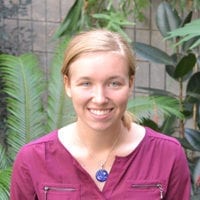
“Aphid Produced Auxin in the Response of Arabidopsis thaliana to Aphids”
Project Summary:
Aphids are one of the most abundant order of sap sucking pests interacting with agricultural crops. My mentor discovered that one of the components in aphid saliva is the auxin indole-3-acetic acid (IAA), a naturally occurring phytohormone in plants. The goal of this research is to determine the role of aphid made auxin in aphid-plant interactions. We looked for plant genes involved in either auxin signaling, regulation, transportation, or storage, that are also expressed differently after aphid treatment. Two auxin related genes DFL1 and Pin5 were found to be induced during aphid treatment. DFL1 is a Gretchen Hagen 3 gene that is involved IAA amino acid conjugation. Amino acid conjugates are known to be involved in auxin inactivation, regulation, and storage. Pin5 is a gene that codes for an auxin transporter which might regulate intracellular auxin homeostasis and metabolism. The cause of the induction of Pin5 and DF1 during aphid treatment is unclear. My research project focused on determining if DFL1 and Pin5 have roles in aphid reproduction. To test this, Arabidopsis thaliana with a mutation in either the DFL1 or the Pin5 gene were selected and at maturity, a leaf on every mutant and wild type plant were infected with an aphid (Myzus persicae) nymph. Infected leaves were then isolated from the rest on the plant for a week and then the number of aphids per leaf was counted. Results will shed light on the role of auxin in aphid interactions with plants.
My Experience:
The Boyce Thompson Institute Summer High School Internship Program provided me a meaningful experience which validated my desire to pursue collegiate studies in biology and genetics. Entering the program, I knew that I wanted to continue to study science, but was unsure on research biology as a path. I am now confident in my decision to study cellular biology or genetics. My mentor Leila was awesome and I’m excited by the new skills and techniques I learned, such as how to extract RNA and genotype plants. I would have never had this opportunity in my high school. I’ve grown tremendously in my ability to work others through my interactions with my mentor and other scientists. I will always be grateful for my time here at BTI!
